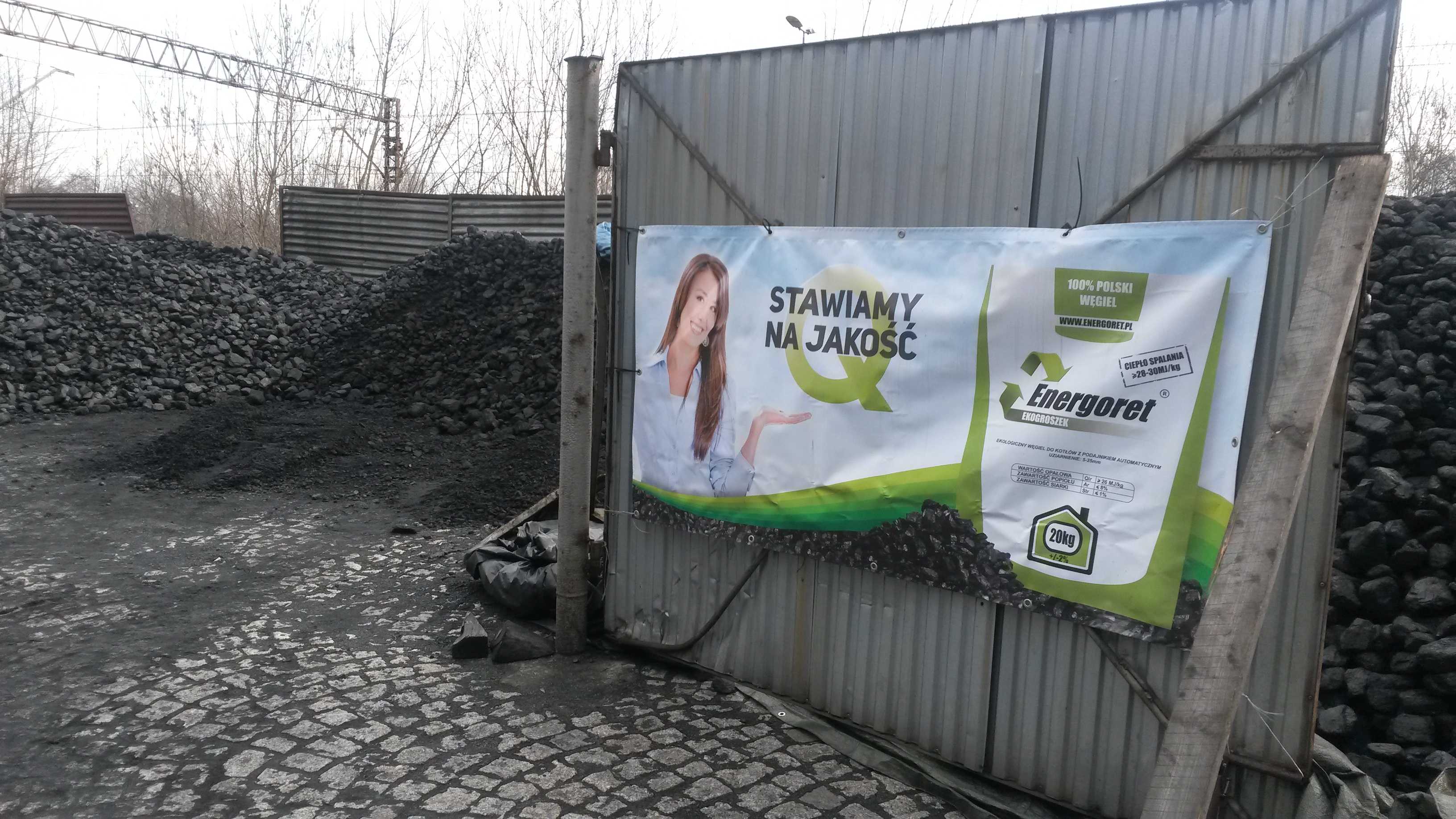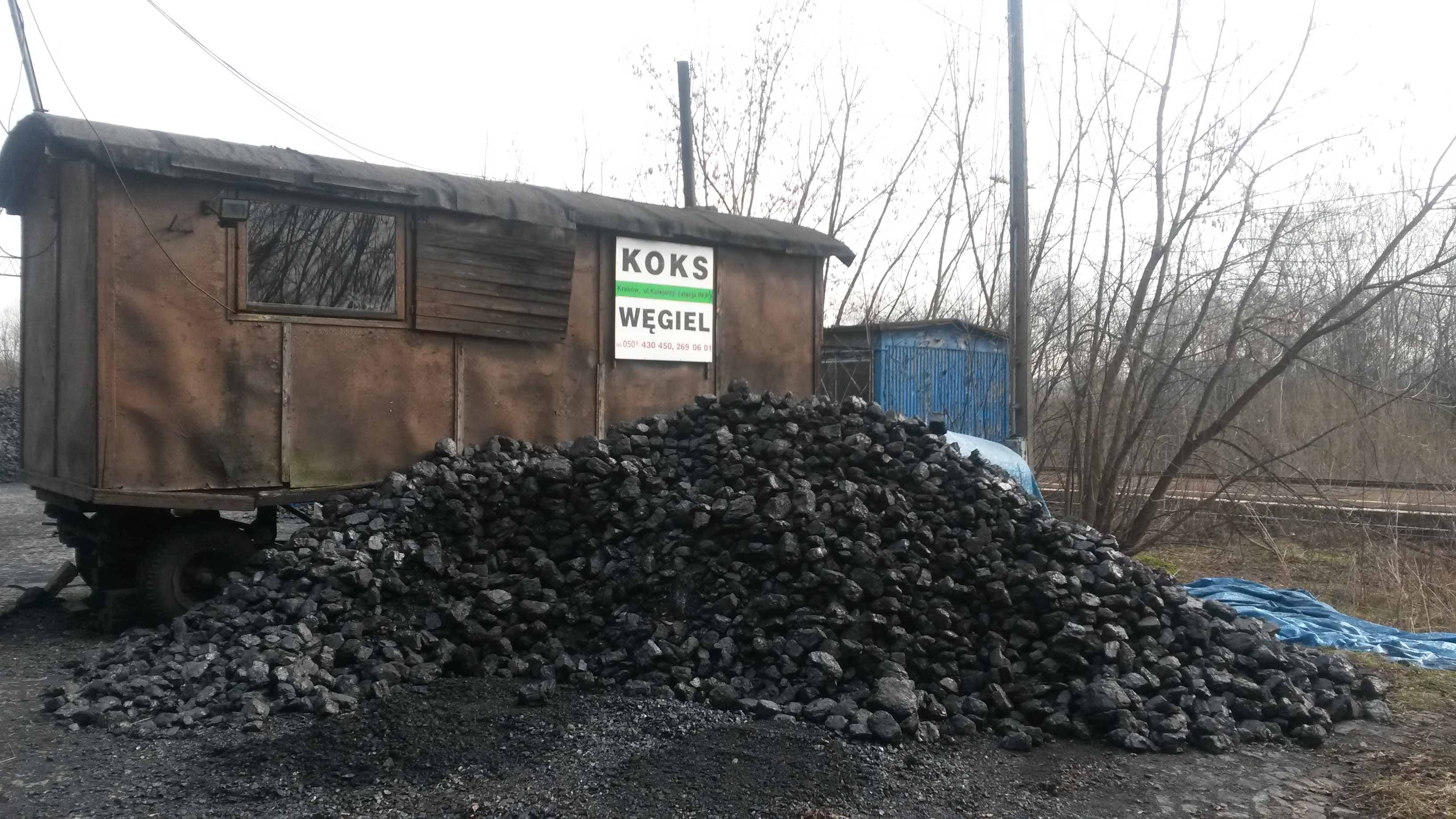
With a neatly trimmed moustache and white doctor's coat, Dr Krzysztof Czarnobilski, head of internal medicine and elder care at Kraków's MSWiA Hospital, speaks nervously, his English formal and stilted. His message, though, couldn't be clearer. The filthy air in Poland's most picturesque city is making his elderly patients sick, shortening their lives and increasing their isolation. The pollution, he says, worsens cognitive and emotional problems such as dementia and depression, and exacerbates breathing and circulatory disorders.
Czarnobilski's hospital, which specialises in treating the elderly, is a yellow concrete building a short tram ride from Kraków's medieval centre; its blocky, institutional style a relic of Poland's Communist past. On winter days, when clouds of black soot hang over the city and pollution readings are especially high, Czarnobilski says the "ambulances queue out here on this street". Medics inside scramble to keep up with the rush of patients as double the usual number of pneumonia cases arrive, instances of heart attack and stroke jump, and those with breathing problems – such as chronic obstructive pulmonary disease and asthma – show up in crisis.
Like other medics around Kraków, on days like these Czarnobilski is in the uncomfortable position of advising patients to avoid exercise and stay indoors, a prescription that for the elderly is at best isolating, and at worst deadly. "The people are very sad on these days," he says. "They are lonely in their flats, and this depression is very, very harmful for their health."
Kraków, an elegant city dotted with the remnants of its history as Poland's royal capital, suffers from the dirtiest air in a country plagued by severe pollution. Much of it is created by the widespread burning of cheap coal in old home stoves, producing smoke rife with carcinogens like dioxins and benzo(a)pyrene, as well as the small sooty particles that are strongly linked to heart, breathing and even cognitive ailments. The cars that clog Kraków's roads and the coal-fired power plants nearby add to the problem.
"There is a day during autumn when you open the window and you know that it's started," says Michal Olszewski, a former environmental activist who is now Kraków bureau chief for the Gazeta Wyborcza newspaper. He is talking about residents' burning of coal, wood, even of plastic bags and bottles for heat. For Olszewski's children, aged nine, seven and three, "the same story begins: they start coughing, and they cough and cough until March or April".
In the leafy neighbourhood of Bronowice, where coal use is particularly high, Monika Bielak and Bogdan Achimescu hurry their boys past the playground after school, foregoing a stop in order to get them more quickly into the filtered air of the family's home.
Achimescu once had a nosebleed that lasted for 20 hours. All through the winter heating season, he and his wife administer breathing medication through a nebuliser to both of their sons almost every night, with steroids added in when their coughing gets especially bad. Nine-year-old Julek isn't growing fast enough, so he gets a daily injection of growth hormone too. Their father doesn't know if that problem is pollution-related, but he does wonder. Even the recently deceased family dog suffered from a cough.
What happened when Achimescu saw a doctor about his nosebleed? "He laughed at me. He said 'What are you expecting? You're living in Kraków'. I had the same reaction from the pulmonologist."
Bronowice's pollution levels are among the city's highest because of its many single-family homes whose residents are more likely to use coal than people living in flats, where gas or district heating networks are more often available. "During winter we are like prisoners really," staying in all afternoon and evening, Bielak says. "The air is stinking, it's horrible, it's dirty."
The couple have bought an electrocatalytic filter, a slim white device about two feet tall which sits next to the dining table and runs for months on end. Achimescu says it brings levels of the tiny, dangerous particles known as PM10 in the lounge, where Julek and Jasiek sleep, down to 50 micrograms per cubic metre – more than twice the World Health Organisation's recommended safe level.
Bielak shows a photo of heavy black smoke pouring from the chimney of the big, pale-pink house across the street. The couple reject the notion that it is only the poor who depend on dirty fuel. "There's a gynaecologist nearby, she has a big SUV and a big chimney that spits smoke," Achimescu says. "There's this whole idea that this is related to poverty. It's a nice story and the politicians love it, but in fact it crumbles when you compare it to reality," he says.
Levels of the small pollution particles that penetrate deep into a human body sometimes reach six times the safe levels in Kraków. Benzo(a)pyrene can hit eight times the recommended maximum, according to the activist group Kraków Smog Alarm, which likens each resident's exposure to the toxin to what they would get from smoking 2,500 cigarettes a year.
But the city is trying to change that. Ranked by the European Union as having Europe's third dirtiest air, topped only by Pernik and Plovdiv in Bulgaria, Kraków became the first in Poland to approve a ban on the use of solid fuels such as coal and wood for home heating.
Scheduled to come into force in 2018, the new law was deemed invalid last year by a regional court – but it remains on the books until an appeal is decided. Meanwhile national politicians, with the backing of Poland's right-leaning government, are seeking to circumvent the decision with a bill that would give regional authorities throughout the country the power to regulate coal, vehicles and other sources of pollution.
With €100m from Brussels, Warsaw and the regional authority, Kraków officials are also pushing forward with financial incentives aimed at getting city residents to junk their old coal stoves in favour of gas, electricity or a hookup to Kraków's district heating system, which pumps heat to users from large central boilers. The city is reimbursing eligible residents for the full cost of a new boiler, but the fraction covered will fall as the ban's start date draws closer.
Even opponents of the ban don't deny Kraków has a serious problem. But they blame transport and industry for the pollution, and say prohibiting home coal use will hit the poorest. Filling his old Mercedes hatchback with sacks of the stuff on the edge of Kraków, Zbigniew Jędrygas says that when his shed is stocked with a tonne of coal: "I am secure and I can sleep well."
With an estimated 30,000 coal boilers scattered around Kraków, change won't be easy, or cheap. The fuel some call "Polish gold" is embedded in the country's culture and history, providing nearly 90% of its electricity and giving Poles a feeling of freedom from their feared neighbour Vladimir Putin and his gas pipelines. And for users, at least, it is a lot less expensive than the alternatives.
At Grzegorz Rumin's coal lot, beside a railway track on the southern edge of Kraków, deep black coal sits in big, open piles and the air is heavy with dust. Every 10 minutes or so, a customer pulls in, and Rumin or one of his workers uses a truck-mounted scoop to dump coal into an open trailer, or shovels it into sacks to be hauled home in a car boot. Rumin, a slim man in work boots and a frayed, blue hoodie, says sales are down since he entered the business in 1998, when schools, other big institutions and many more homes used coal for heat.
Back then, he says, the lot sometimes sold 100 tonnes a day. Now "the best day is 20, 20-something" tonnes, but even that is unusual. Indeed, only about 7% of Kraków's households currently use coal, according to the Kraków Institute for Sustainable Energy. The number has fallen over the years and is, as a proportion, much lower than elsewhere in Poland. But Kraków's population density and its location in a valley mean its air, officially at least, is the country's worst. Many suspect pollution is even higher in small towns that lack sophisticated monitoring equipment.
Rumin alternates between fury and exasperation when the subject of the ban comes up. His business will close if the law stands. Local officials, he thinks, have misdiagnosed the problem and have their priorities upside-down. "Look at Paris, for example," he says. "What do they use for heating? Do they also use coal? I think not, but they also have smog. It's not about coal."
Rumin says he has customers whose homes lack running water or sewerage pipes. Meanwhile, Kraków's officials "are saying they will provide people with gas heating systems. How can they do it if there are some families that do not even have such basic things?"
In a sunny office near Kraków's central square, Anna Dworakowska and a handful of her colleagues provided the push that allies and adversaries agree prompted lawmakers to approve Kraków's groundbreaking ban. Dworakowska's group, Kraków Smog Alarm, gathered 17,500 signatures in 2013 and placed billboards and posters around the city with slogans such as: "I already have asthma, I don't need cancer."
Hundreds of people participated in demonstrations, some pushing empty buggies to represent the children forced to stay indoors because of dirty air. "There were placards reading 'Sophie: She doesn't go out, she hasn't been in fresh air for two months now,'" Dworakowska recalls.
Their cause has now become mainstream; even Poland's pro-coal government is targeting home use – perhaps because it is easier than confronting big power companies about the emissions from their coal-fired plants.
Before the campaign, Dworakowska says, the "media would write maybe three articles about air pollution at the beginning of the heating season, the first smoke episode, and then they would quit. Because how many times can you write about the same thing? But we've had more than 1,000 media articles now, it's the main topic, everybody speaks about it. I think that's something we've definitely changed."
For Dr Czarnobilski at the MSWiA Hospital, the change can't come fast enough. As workers renovating the emergency room downstairs from his office hammer and shout, he sits thoughtfully behind his dark, polished wooden desk. His patients, he says, often respond angrily when he urges them to stay indoors.
"Their depression begins to get deeper and deeper. If an old patient stays at home and doesn't move," he says, before trailing off, " … what else? Stay in bed, and finally die."

Education Resource
Meet the Journalist: Beth Gardiner
Poland is among the most coal-dependent nations in Europe, and its leaders are the fuel's staunchest...





